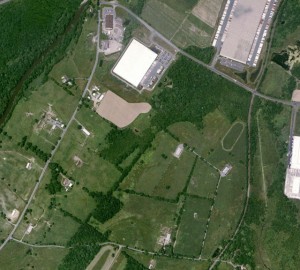DEVELOPMENT FEASIBILITY STUDIES
In an increasingly developed metropolitan area such as the New York Metro area, finding sites that are suitable for development is becoming increasingly difficult.
Parcels that are still vacant may be constrained by wetlands, steep slopes, poor soils, or other physical factors. Sites that were previously developed may contain hazardous materials or historic resources. Even with sites that appear to be developable, the construction of new facilities is often viewed by the community as undesirable for a number of reasons.
Either the efforts to maintain and increase open space in certain areas, or concerns relating to the potential for effects on water resources, or moratoriums on sewer hookups, or simply the NIMBY (Not in my Backyard) syndrome, make for a difficult approvals process for projects, especially those which involve disturbance to hitherto undisturbed sites.
The professionals that comprise Hudson Highlands Environmental Consulting offer a wide range of professional knowledge, expertise, and experience to land developers and real estate professionals seeking to locate a potential site for development or adaptive re-use, or who have already selected such a site and wish to gauge the relative likelihood of success before making a major investment or devoting substantial resources to lining up appropriate financing.
In conjunction with an assessment of the site’s physical attributes, HHEC can examine a project site in relation to the regulatory constraints of the appropriate state, county and municipality within which the site lies, particularly:
 Zoning regulations, including incentive and bonus provisions.
Zoning regulations, including incentive and bonus provisions.
- Subdivision regulations.
- Wetlands regulations.
- Steep slopes ordinances.
- Tree protection ordinances.
- Open space and recreation requirements
- Master Plans
- Formal County and municipal mapping
- Health regulations (Sanitary sewage disposal, water supply)
- Environmental assessment requirements (e.g., location of CEAs; agency Type I and Type II listings, and jurisdictional vicissitudes/attitudes)
- Recent court and ZBA decisions relative to zoning and planning.
- Low and moderate income housing requirements or incentives.
- Funding availability to assist development
- Potential presence of significant cultural (historic/archaeological) resources.
Where significant community concerns are identified, experience has shown that certain actions taken prior to proposing a major change in land use in a municipality can prove beneficial for the overall success of a project. Sensitivity to surrounding land uses, the preservation or enhancement of property values; and an evaluation of the overall effect of large-scale changes in land use, or alternatively, an extended period of vacancy, on the tax base, can make the difference between local political leaders taking a development proposal seriously or dismissing it out of hand.
Hudson Highlands Environmental Consulting will then prepare a summary outlining the development feasibility of the project site under current regulations, as well as potential alternatives and the likelihood of obtaining any necessary variances or permits. Based on these analyses, a final recommendation can be made which can significantly reduce the economic risks normally associated with land development projects.
